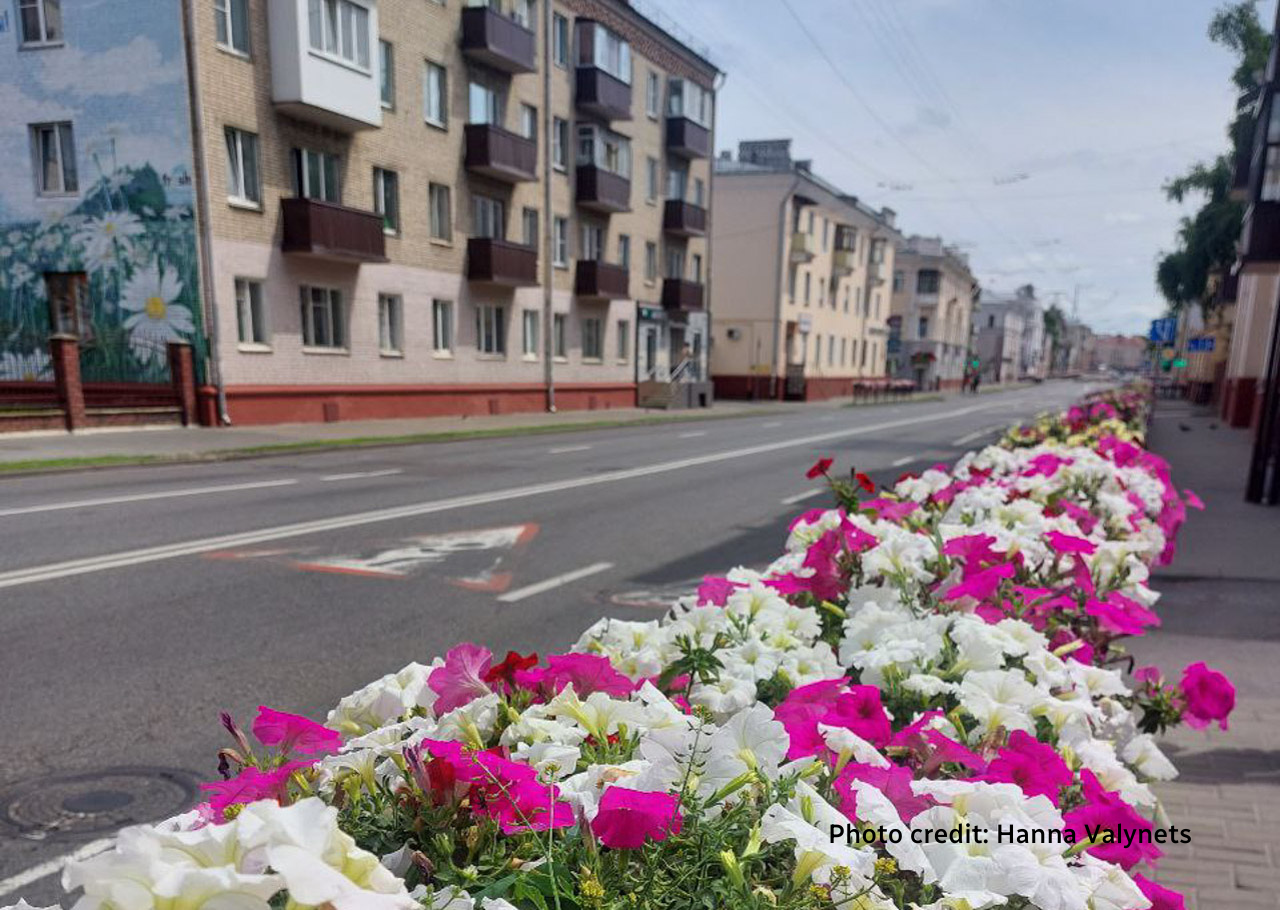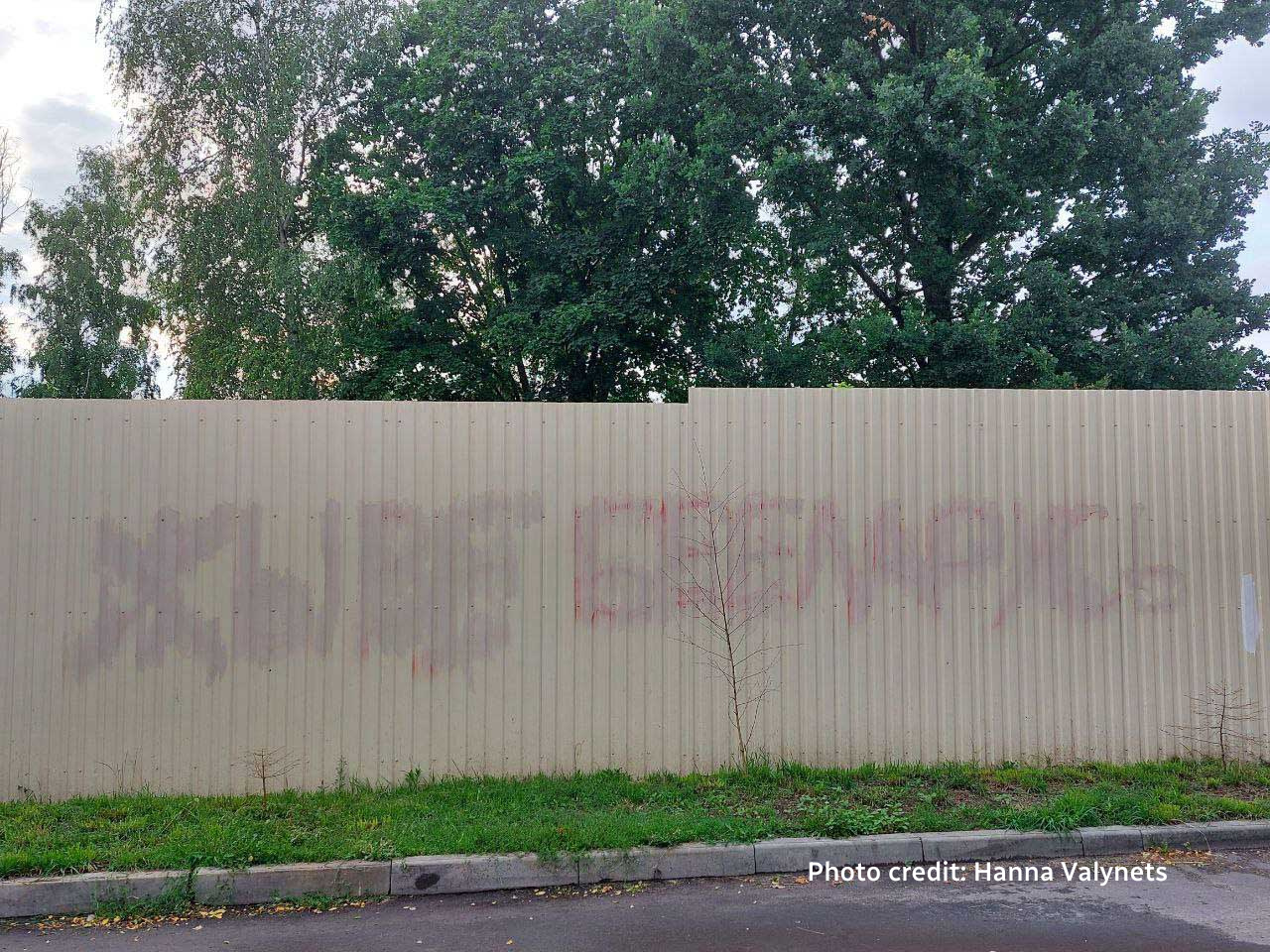“Life Is in Full Swing, but Not Necessarily for Them.”
The people in Belarus’s regions are mostly concerned about their salaries and job, explains the independent Center for New Ideas.

“Those Who Would Go To Other Countries Can Choose Minsk”
“Yay, Pružany is finally getting noticed!!”, TikTok users chant, commenting on a video showing a list of the worst cities in Belarus. The video was made on the basis of the city rating that is compiled annually by the Center for New Ideas, an independent think tank. At the time of writing, the video had gained more than 17,000 likes and 1.7 million views—a significant figure for a country with a population of 9 million.
The head of the organization, Anton Radniankou, says: “People want to talk, but they are scared and don’t have any space to do it”. He adds that users in Belarus consider TikTok to be a relatively safe space. “There is a big demand for communication, since the state does not talk to them, and reading many independent media is dangerous and can become a reason for political persecution”.
Every year, the city rating is the most referenced of the research produced by the Center for New Ideas. However, it is more and more difficult to produce it as the amount of publicly available statistics is decreasing. Since 2019, the think tank has compiled the rating based on data on demography, economy, quality of life, and socio-political relations. Launched as a tool to advocate for changes in cities, its function changed in 2020.
Over the past three years, hundreds of thousands of people have left Belarus due to repression and to its involvement in the war in Ukraine. The rating now is a list of cities where people can move to for a better life inside the country. In first place is the capital Minsk, then come the regional centers Hrodna and Brest, and next are the mining town of Salihorsk and Minsk’s satellite Dziaržynsk.
“Foreigners do not understand the scale of repression in Belarus. Some people think that there is more repression in Russia than in Belarus, while Belarus has become the biggest prison in Europe”, explains Radniankou.
Migration to other cities is more beneficial for the country than moving to other countries, because in this way Belarus preserves its human capital and economic potential, he says. “Those who would go to other countries can choose Minsk. It partially holds back the migration: this is a slightly improved Belarus, if you look at salaries, roads, the assortment of goods, and how much easier it is to find a job”.
“There Are Jobs, but No Salaries”
The Center for New Ideas is one of a small number of organizations to conduct research on the Belarusian regions, where the majority of the population—about seven million people—live. The people there face issues that are not discussed enough in the public sphere, according to Radniankou. The researchers of the Center for New Ideas tried to address this as part of a study that was published in February 2023 with the title “What Concerns Belarusians?”
“There are jobs, but no salaries”, says Mikhail Matskevich, a coauthor of the study, sharing a quote from one of the respondents. He explains that the survey was conducted primarily among the “protest” audience: people who are discontented with the state of affairs in Belarus. Most often, these people describe their lives by saying they feel anxious, indignant, and irritated. They are primarily concerned about high prices, low salaries, and the lack of good job opportunities.
Concerns differed between Minsk and the regions: 53% of respondents in the latter said they worried about the lack of good jobs, compared to 13% in the capital.
Around 90% of respondents said they did not make plans a year or more in advance, while 26% said they did not make plans at all. About two-thirds considered events around them to be extraordinary and difficult to adapt to.

Matskevich concludes: “People in the regions feel that life is in full swing, but not necessarily for them; they believe that life is better in other cities or in the capital”.
“It Is Very Important for Us Not To Go Into Our Own Microcosm”
The Center for New Ideas was created to convince citizens that think Belarus is provincial or a place where nothing happens.
“In November 2012, we met with Ryhor Astapenia, a young political scientist, at the Belarusian Human Rights School. At that time, I was doing translations for [the French monthly magazine] Le monde diplomatique in Belarus”, remembers Radniankou. “One evening while sitting, we thought that we should create something of our own, and it was the very beginning of the Idea online magazine”.
Over time, the magazine grew into the Center for New Ideas. In addition to studying regional developments, it also focuses on foreign policy and Belarusian society. The goal is to spark discussions in society on complex topics and to form a shared perspective on those questions.

For instance, one of its studies was devoted to possible reforms and to the attitudes of Belarusians inside the country toward them. Interviewing hundreds of people, the researchers assessed the degree of satisfaction with various aspects of life in the country.
“The word ‘reforms’ is very abstract for people. If you ask a Belarusian how things are going, he will answer: ‘It’s fine, I’m alive—and that’s well’. And when you ask about their children and kindergarten, how is it going at work, people start sharing more”, says Radniankou.
The Center for New Ideas is located outside Belarus, like many other civil society organizations. To stay connected to the reality inside the country, its researchers shifted their focus to qualitative research methods.
“Through in-depth interviews, we can understand what the everyday life of Belarusians in Belarus is like and which words they use to describe their problems. Considering that the vast majority of the civic sector works in exile, it is very important for us not to go into our own microcosm”, Radniankou says.
To reach people in Belarus, the think tank had to change its methods, carefully calculating the risks and explaining them to interlocutors, and often leaving people de-identified.
“People in Belarus should understand the risks and make their own decisions, while we need to explain and make the process as safe as possible,” says Radniankou. “I don’t think that we should take away the actorship from people in Belarus and decide on their behalf”.
“The Expert Community Focuses on Events Here and Now”
The research projects of the Center for New Ideas have the same level of quality as research conducted by state institutions, says Henadz Korshunau, a senior sociologist at the think tank. He has 20 years of research experience and worked at the Belarusian Academy of Sciences until the 2020 uprising.
Korshunau argues that the advantage of the organization over state agencies is that its specialists choose topics themselves and their work is not censored. “We have the same high level of methodological support, but we clearly have much more freedom in choosing topics. In a state organization, a plan is usually drawn up for five years”, he says. “In the work of NGOs, there is a greater emphasis on expertise that should be provided in a shorter period. The expert community focuses on the events here and now”.
At the same time, Korshunau notes that after 2020 the scope of independent research changed. Some experts are behind bars; some cannot work because of the high risks related with living inside the country. “Plus, there is a partially missed opportunity to influence decision-makers. Previously, the economic think thank Beroc worked on doing this, the educational NGO Sympa was engaged in the education of state officials. Now the regime has built a barrier and said that we are all extremists”, explains Korshunau.
However, he considers this to be a time of opportunity, as current events demand that the expert community should build more ambitious goals than before.
“A Democratic Future Only if Society Keeps Demanding This”
Preserving the demand for democratic change will remain one of the most important challenges for Belarus in the coming years. “We can hope for a democratic future only if society keeps demanding this. The year 2020 showed the existence of those wanting this, but nothing is permanent,” says Radniankou.
This demand still exists among the new generation of leaders who are being educated in the organization’s special programs. However, the situation can change for Belarusians due to the rapprochement with Russia, he explains.
This rapprochement occurs in various spheres, from economic to cultural. “Until 2020, Belarusians were spending their vacations in Barcelona and doing shopping in Vilnius, which allowed them to adopt European values through household consumption. People wanted to have the same clothes and life that they saw in such places. Now, the vast majority face visa restrictions and believe that obtaining one is impossible. Instead, they travel to Sochi, St. Petersburg, Moscow, and they increasingly adopt the Russian world’s ideas. Geopolitically, this is the most serious challenge for the coming years. It leads to a weakening of independence and sovereignty in the country.”